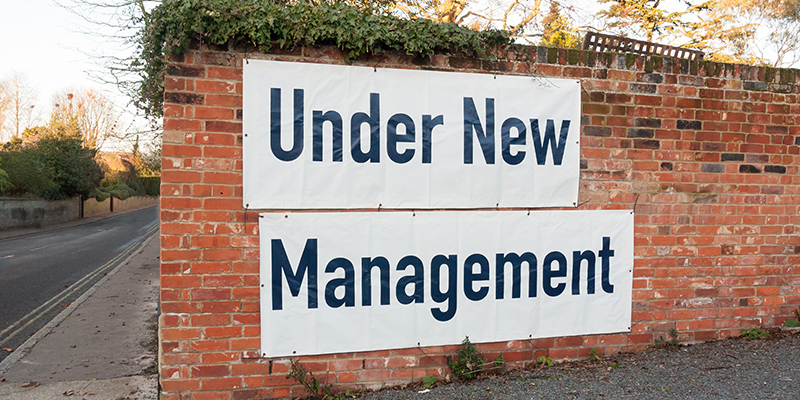The Critical Role of HOA Administration in Upholding Area Requirements and Laws
Homeowners Organizations (HOAs) serve an essential feature in preserving area requirements and guidelines, serving as the guardian of common values and looks within neighborhoods. Their obligations expand past mere enforcement; they foster a feeling of belonging and liability among residents. By thoroughly managing guidelines and attending to non-compliance, HOAs not only safeguard residential property values but likewise grow an environment where communication and cooperation can prosper. Nevertheless, the effectiveness of these monitoring methods elevates relevant questions concerning governance, resident engagement, and the equilibrium in between law and individual liberty. What implications do these characteristics hold for the future of neighborhood living?
Value of HOA Management
The relevance of efficient HOA management can not be overstated, as it plays a crucial function in keeping the overall high quality and allure of a community. Homeowners' Organizations (HOAs) function as the backbone of domestic areas, offering structure and organization that cultivates an unified living setting. Through efficient monitoring, HOAs make certain that community criteria are supported, therefore protecting residential or commercial property values and boosting residents' lifestyle.
A well-managed HOA can facilitate open communication amongst homeowners, address complaints immediately, and produce a sense of belonging. It develops policies and guidelines that reflect the area's values, guaranteeing consistent maintenance of common rooms and amenities. Furthermore, reliable monitoring help in financial preparation and resource allowance, which is essential for the sustainability of community tasks and maintenance.
In addition, an efficient HOA can advertise community interaction by promoting and organizing events collaboration among residents - austin hoa management. This not just strengthens connections however likewise encourages active involvement in decision-making procedures. Inevitably, reliable HOA monitoring is important for growing a vibrant, attractive, and natural neighborhood that meets the needs and assumptions of its residents
Key Obligations of HOAs
Regularly, Property Owners' Organizations (HOAs) assume a variety of key duties that are crucial for the smooth procedure and maintenance of a neighborhood. One of the primary responsibilities of HOAs is to manage the monetary aspects of the neighborhood, including budgeting, accumulating dues, and preserving reserve funds for future repair work and enhancements. This financial oversight guarantees that the community remains lasting and properly maintained.
In Addition, HOAs are liable for preserving common areas, such as parks, swimming pools, and landscaping. This entails normal maintenance, repairs, and enhancements to ensure these rooms continue to be appealing and practical for homeowners. Communication is likewise a critical aspect of HOA duties; they should maintain home owners educated regarding community information, upcoming conferences, and adjustments to policies or policies.

Moreover, HOAs typically facilitate area events and activities, promoting a feeling of belonging and interaction among citizens. They may likewise take care of management tasks, consisting of record-keeping and conformity with state and local guidelines. Through these obligations, HOAs play a vital role in advertising a cohesive and well-managed community, inevitably improving building worths and homeowners' lifestyle.

Enforcing Neighborhood Specifications
To preserve a harmonious living environment, HOAs play a crucial function in enforcing neighborhood criteria. These requirements, normally laid out in governing papers such as the Declaration of Conditions, limitations, and covenants (CC&R s), are developed to protect residential property worths, make certain aesthetic consistency, and advertise a feeling of area amongst locals. HOAs need to ensure that all homeowners adhere to these guidelines to create a well-kept neighborhood.
Enforcement devices can vary, however typically involve regular evaluations of buildings, interaction with residents concerning violations, and the charge of penalties for non-compliance. Such measures may consist of fines, ask for restorative activity, or, in extreme instances, legal procedures. An aggressive method to enforcement not only hinders possible offenses but additionally promotes a culture of liability among residents.
Furthermore, openness in the enforcement procedure is vital. HOAs should clearly connect assumptions, effects, and standards to all homeowners. This quality aids to reduce misconceptions and makes sure that citizens recognize their duties. Inevitably, efficient enforcement of neighborhood standards by HOAs is vital for keeping the total lifestyle within the area and supporting the worths that locals have actually bought their homes.
Dispute Resolution Techniques
Efficient problem resolution methods are essential for maintaining a participating and peaceful neighborhood within home owners' organizations (HOAs) HOAs usually offer as the initial line of defense in attending to conflicts that arise amongst locals. Implementing proactive interaction methods is essential; this consists of developing clear channels for residents to voice concerns and grievances. Regular meetings and community online forums can help with open discussion, enabling participants to express their viewpoints and look for shared understanding.
Additionally, mediation plays a significant duty in settling conflicts (austin hoa management). Neutral third-party arbitrators can assist assist in conversations and guide celebrations towards a collective service. This method highlights concession and fosters a sense of neighborhood, instead of enabling disagreements to escalate into contentious battles
Moreover, developing and imposing a clear set of rules and treatments for managing problems is vital. These guidelines must be communicated successfully to all residents, making sure everybody comprehends the process for looking for and lodging grievances resolution. Finally, providing dispute resolution training for board members and community leaders outfits them with the required abilities to take care of conflicts successfully, making certain that disputes are dealt with amicably and based on the neighborhood's criteria and policies.
Enhancing Home Worths
Maintaining unified relationships amongst homeowners not only promotes a sense of neighborhood but also plays a significant function in improving residential or commercial property worths within house owners' associations (HOAs) Effective HOA administration ensures that area requirements and laws are article source promoted, developing an environment where building maintenance is prioritized. Well-maintained typical locations, adherence to building guidelines, and timely enforcement of rules contribute to an enticing neighborhood that attracts potential advice purchasers.

In addition, normal maintenance and improvement jobs, such as landscaping and facility upgrades, show positively on building values. HOAs that effectively handle budgets to fund these initiatives show a dedication to long-term value conservation.
Eventually, an HOA that focuses on area relationships and home requirements develops a preferable living setting. This not just benefits current locals however additionally places the community favorably in the real estate market, making sure that property values stay appealing and durable to future homeowners.
Conclusion
To conclude, HOA administration is vital for maintaining neighborhood criteria and guidelines, consequently promoting a harmonious living atmosphere. Through the enforcement of guidelines, routine property examinations, and reliable conflict resolution techniques, HOAs play a critical function in enhancing residential property worths and advertising transparency amongst citizens. The proactive steps applied by HOAs not only safeguard the aesthetic integrity of areas however also add to a natural environment that sustains open interaction and cooperation among all citizens.
Through efficient monitoring, HOAs ensure that community criteria are upheld, therefore securing residential or commercial property values and boosting homeowners' top quality of life.
Through these obligations, HOAs play a crucial function in advertising a well-managed and natural community, eventually enhancing property values and residents' quality of life.
Inevitably, reliable enforcement of community requirements by HOAs is crucial for keeping the total quality of life within the area and promoting the values that locals have actually invested in their homes.
Supplying conflict resolution training for board participants and community leaders furnishes them with the needed skills to take care of conflicts effectively, guaranteeing that disputes are dealt with agreeably site link and in accordance with the community's guidelines and requirements.
Keeping harmonious relationships among homeowners not only promotes a sense of community but also plays a significant role in improving building values within homeowners' associations (HOAs)
Comments on “Secret Considerations When Working With Austin HOA Management Professionals”